Does the NSW Education System need a refresh?

Recently, there has been a lot of talk about the flaws in the Australian education system, and the need to spearhead change
If you navigate through the Education Section of the Sydney Morning Herald, The Guardian, or The Australian there are always a plethora of articles and opinion pieces that cover this topic – many of which we share on our Facebook page!
This belief has been floating around for a long time, as Australia’s education rankings in comparison to the rest of world have declined dramatically. As of 2018 we are now sixth after South Korea, Finland, Canada, New Zealand and Japan. All if this has ultimately lead to Gonski 2.0, providing recommendations regarding educational reform which must be implemented to stimulate appropriate learning and development.
New South Wales has implemented changes in 20 subjects for implementation this year and examined for the first time next year. This is occurring in the HSC, while at the same time Gonski 2.0 is being implemented across Australia. In New South Wales the opinion is divided on how to address the educational issues as we slip further behind internationally?
Student progress much be tracked
A common strategy which most articles advocate is the need for tracking student progress. Gonski 2.0 has recommended the implementation of an “online formative assessment tool,” to track students progress and outcomes, measuring the effectiveness of the current teaching strategies and identifies their weaknesses. This is essential in promoting growth for each individual student, and ensuring that at a national level, education outcomes are continuously improving. But will it take time away from teaching? Will the teacher be too preoccupied with completing the tracker since they’re already buried in paperwork. Anyway, we have NAPLAN…
Well rounded, constructive education
The current system is constantly scrutinised due to the importance of securing a high ATAR, and receiving admission into university. Schools rankings are determined by the number of Band 6 levels that the cohort receives – not in the subject that they got the Band 6. Consequently, several issues arise such as students simply choosing easier subjects to maximise their marks.
The universal message across the education dialogue is that the main purpose of education should be to develop student learning and growth, to provide the requirements necessary to thrive within the workforce. Currently, it is a system where students are focusing on whatever they can do to boost their ATAR, leading to a decline in practical skills.
A major component of this argument is the need to promote the development of STEM skills. It is essential for students to retain a hard skill which is applicable throughout their tertiary education and employment.
One of the articles stated, “Australia could boost GDP by $57.4 billion if 1% of the workforce shifted into STEM’ish jobs.”
Focus on individual learning
The last, but possibly most important theme being discussed in most educational pieces, is the need to shift to an individualised, student-centred educational system. This ties into the previous two points, through tracking individual student progress, and allowing students to develop practical, work-related skills.
A major discussion point which has been integrated into the Gonski 2.0 recommendations, is the shift from standardised assessments, to more sophisticated, holistic measures. Such measures have been utilised internationally, and could involve processes such as greater work experience, school evaluations and self-reflections.
The main takeaway from all this is that the education system must realign its focus upon individual, practical, and relevant learning, rather than creating an approach where University Admission and scoring a high ATAR is the prime objective.




